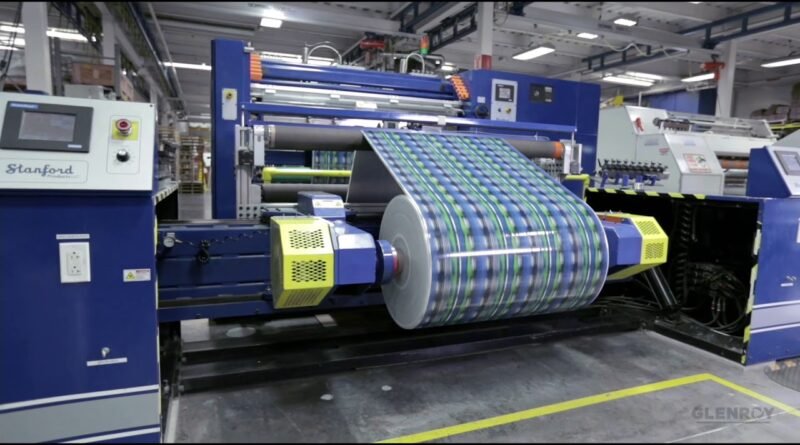Ultimate Guide To Flexible Packaging Machines Types & Benefits
In today’s fast-paced consumer goods industry, packaging plays a crucial role in product protection, preservation, and marketability. Flexible packaging has emerged as a versatile and efficient solution that meets the diverse needs of various industries. This article explores the intricacies of flexible packaging machines, highlighting their types, benefits, applications, and future trends.
What is a Flexible Packaging Machine?
Flexible packaging machines are automated systems designed to efficiently package products using flexible materials such as films, foils, and laminates. These machines integrate multiple functions like forming, filling, and sealing, ensuring products are securely packaged for distribution and retail.
Types of Flexible Packaging Machines
Vertical Form-Fill-Seal (VFFS) Machines
Vertical Form-Fill-Seal (VFFS) machines are widely used for packaging dry and solid products such as snacks, grains, and powders. They operate by forming a bag from a roll of film, filling it with the product, and sealing it vertically. VFFS machines are popular due to their high-speed production capabilities and ability to handle various bag sizes and styles.
Horizontal Form-Fill-Seal (HFFS) Machines
Horizontal Form-Fill-Seal (HFFS) machines are ideal for packaging liquids, gels, and viscous products. Unlike VFFS machines, HFFS machines form, fill, and seal packages horizontally. They are commonly used in industries requiring precise filling volumes and consistent seal integrity.
Pouch Filling and Sealing Machines
Pouch filling and sealing machines are versatile systems used for packaging liquids, powders, and granular products in pouch formats. These machines offer flexibility in packaging design and are favored for their efficiency in handling both small and large-scale production runs.
Benefits of Using Flexible Packaging Machines
Cost Efficiency
Flexible packaging machines offer significant Flexible packaging machine cost savings through reduced material usage, minimized product waste, and lower labor costs. Their ability to integrate multiple packaging functions into a single process enhances operational efficiency and overall production output.
Versatility and Customization
One of the key advantages of flexible packaging machines is their versatility in accommodating various product types, shapes, and sizes. Manufacturers can customize packaging designs to enhance branding and consumer appeal, thus gaining a competitive edge in the market.
Improved Product Protection and Shelf Life
Flexible packaging materials provide excellent barrier properties against moisture, oxygen, and light, thereby extending the shelf life of perishable products. This makes them suitable for preserving food freshness and maintaining product integrity throughout distribution and storage.
Applications of Flexible Packaging Machines
Food and Beverage Industry
In the food and beverage sector, flexible packaging machines are essential for packaging snacks, beverages, frozen foods, and ready-to-eat meals. These machines ensure product safety, convenience, and extended shelf life, meeting consumer demands for freshness and portability.
Pharmaceutical Industry
The pharmaceutical industry relies on flexible packaging machines to maintain the efficacy and safety of medications. These machines adhere to stringent hygiene standards and ensure accurate dosing and tamper-evident packaging, crucial for pharmaceutical compliance and consumer trust.
Cosmetics and Personal Care Products
Flexible packaging solutions are increasingly adopted in the cosmetics and personal care industry for their aesthetic appeal and practicality. These machines facilitate the packaging of lotions, creams, and toiletries in attractive, leak-proof containers that enhance product visibility and consumer appeal.
Industrial and Household Products
Industries producing industrial and household products utilize flexible packaging machines for packaging hardware, cleaning supplies, and pet care products. The versatility of these machines supports diverse packaging needs while optimizing production efficiency and reducing packaging waste.
Challenges and Considerations
Maintenance and Operation
To ensure optimal performance, flexible packaging machines require regular maintenance and calibration. Manufacturers must invest in training programs for operators to handle these machines effectively, minimizing downtime and maximizing production uptime.
Environmental Impact
While flexible packaging offers numerous benefits, concerns about its environmental impact persist. Efforts are underway to enhance recyclability and reduce packaging waste through innovative materials and sustainable practices, aligning with global sustainability goals.
Future Trends in Flexible Packaging Machines
The future of flexible packaging machines is marked by advancements in smart packaging technologies, including IoT integration for real-time monitoring and automation. Innovations in eco-friendly materials and packaging designs will further drive sustainability and efficiency in the packaging industry.
Conclusion:
Flexible packaging machines represent a pivotal advancement in modern packaging technology, offering manufacturers across various industries a versatile, efficient, and sustainable solution for product packaging. By understanding the types, benefits, applications, and evolving trends of flexible packaging machines, businesses can leverage these technologies to enhance product integrity, consumer satisfaction, and market competitiveness.

